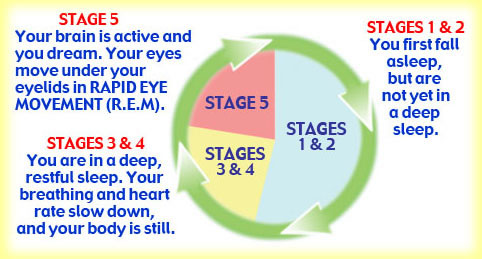
A good night’s rest boosts your immune system, increases your energy, and even influences proper eating habits. Not getting enough sleep can lead to more than just a tired feeling.

Often, people will take physicians’ advice seriously when it comes to diet and exercise, but not sleep. However, many people forget the eight hours of shuteye that doctors recommend are vital to your health as well. Persons with insomnia develop poor sleep habits that can interfere with the signals that our internal clock needs to keep sleep and wake balanced.You eat right most days. Having the same wake-up time every day is one of the strongest signals we can give our internal clock to strengthen our sleep-wake rhythm. In order to keep our internal clock set and running smoothly, it needs signals from the environment such as light and dark, regular schedules and activities, and social interactions. People and animals have a very strong internal clock that helps to regulate many body functions such as blood pressure, heart rate, urine production, digestion, temperature, and sleep-wake rhythm. The other factor that helps to regulate our sleep is our biological or internal clock. Persons with insomnia develop poor sleep habits that can interfere with the drive to sleep. When we awaken in the morning, our drive to sleep (sleep debt) starts to build again throughout the day. Our drive to sleep is high because we've been awake all day: we have built up a big sleep debt! We pay off the sleep debt during the night as we sleep. After we awaken in the morning, the longer we spend awake, the greater is our drive to sleep. If we woke up in the morning and did not eat all day, at dinner time we would be very hungry. One way to understand the sleep drive is to think about another drive, the drive to eat. Two factors work together to regulate sleep: the sleep drive and the biological or internal clock. Our sleep can be affected by changes in our health as we age such as diabetes, arthritis, and prostate enlargement. The duration of sleep may be shorter than when we were younger. Older persons often wake up earlier than younger sleepers. They spend more time in lighter sleep stages so they are more vulnerable to awakening. This is one reason why older persons may wake up more often. We have more REM or dream sleep in the later half of the night.Īs we age, we start to have less deep sleep (stage N3) so we tend to stay in lighter stages of sleep (stages 1 and 2).

We have more deep sleep or stage N3 in the first half of the night's sleep and less as the night goes on. We spend different amounts of time in the different stages of sleep, depending on the time of night. After stages N1-N3, we enter the REM stage of sleep (rapid eye movement sleep) which is often called 'dream sleep.' Stage N3 is the deepest sleep.It takes more effort to awaken someone from stage N3 sleep than the other stages. If you were awakened from stage N2 sleep, you would probably say you had been asleep. After stage 1, we enter stage N2 of sleep, still a light stage of sleep but more sound than stage 1. If you were awakened from stage N1 sleep, you would probably say you had not been sleeping. This is a transition or bridge stage which means the stage between wake and sleep. After we fall asleep, we start stage N1 of sleep, a very light sleep.

Good sleepers fall asleep easily but typically in not more than 30 minutes. Scientists have studied persons sleeping overnight in sleep laboratories and hooked up to monitoring equipment. Information about the stages of sleep comes from research.

We repeat the stages of sleep over and over again during the night. When we sleep, we go through different types of sleep or stages of sleep. A helpful first step in developing healthy sleep is to have some basic information about sleep.


 0 kommentar(er)
0 kommentar(er)
